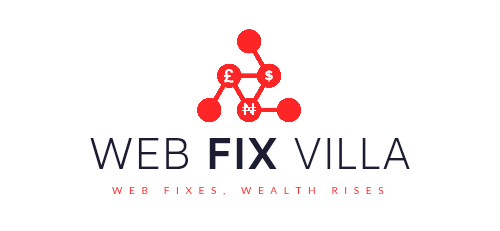
A common belief among many Nigerians is that investing is only for the wealthy. But that’s not the case! You can begin your investment journey with as little as ₦1,000 and gradually build your financial future. The secret is to begin early, stay consistent, and pick smart investment options.
This guide will walk you through affordable investment opportunities in Nigeria, how to get started, and pitfalls to steer clear of.
1. Why You Should Start Investing
- Grow Your Money – Rather than letting money sit idle, investing allows it to generate returns.
- Stay Ahead of Inflation – Investing helps preserve your money’s value over time.
- Secure Your Future – Build wealth for emergencies, retirement, or big life plans.
- Create Passive Income – Let your money work for you, even while you sleep.
💡 Start now—the sooner you invest, the more time your money has to grow!
2. Top Investment Options in Nigeria for Beginners
1️⃣ Fixed Deposits
- A simple, low-risk option where your funds earn interest over a set period.
- Higher returns than a standard savings account.
💡 Get started by visiting your bank and asking about their fixed deposit packages (GTBank, Access Bank, Zenith Bank, etc.).
2️⃣ Mutual Funds
- Your money is combined with others and managed by professional fund managers.
- Ideal for beginners and offers better returns than savings accounts.
- You can invest from ₦5,000 upwards.
💡 Popular platforms include:
- Stanbic IBTC Mutual Funds
- ARM Investment
- Cowrywise
- PiggyVest Investify
3️⃣ Treasury Bills & Government Bonds
- Government-backed investments offering guaranteed returns.
- Low risk and suitable for conservative investors.
- Minimum investment typically starts at ₦10,000.
💡 Where to invest:
- CBN Auctions (via your bank)
- Apps like Cowrywise, Bamboo
4️⃣ AgriTech Investments
- Support agriculture by funding farms and earn a share of the profit.
- Returns can range from 10% to 30% in a few months.
- Minimum entry is often ₦10,000.
💡 Trustworthy platforms include:
- ThriveAgric
- FarmCrowdy
- Payfarmer
🚨 Caution: Only invest in verified and credible platforms.
5️⃣ Affordable Real Estate Options
- Purchase land in developing areas or join co-investment property schemes.
- Some platforms offer fractional ownership—owning a portion of a property.
💡 Real estate investment platforms:
- Risevest (for foreign real estate)
- Coreum
- PropertyListings.ng
6️⃣ Stock Market
- Buy shares in Nigerian companies like MTN, Nestle, or Dangote.
- As the company grows, your investment appreciates.
- You can start investing from ₦5,000 – ₦10,000.
💡 How to get started:
- Use trading apps like Bamboo, Chaka, or Trove.
- Open a CSCS account via stockbrokers (e.g., Stanbic IBTC, Meristem).
🚨 Focus on companies with strong track records.
7️⃣ Cryptocurrency & Digital Assets
- Buy and hold crypto like Bitcoin, Ethereum, or USDT.
- Volatile but potentially high-return investment.
- Start with as little as ₦1,000.
💡 Reliable exchanges include:
- Binance
- Quidax
- Luno
🚨 Crypto is risky—invest only what you can afford to lose!
8️⃣ Gold and Precious Metals
- Gold remains a reliable store of value and protects against inflation.
- You can invest through ETFs or buy physical gold in small quantities.
💡 Start with:
- Gold ETFs (via stockbrokers)
- Verified dealers on platforms like Jumia
3. Steps to Begin Your Investment Journey
✅ Step 1: Define Your Investment Goals
- What are you investing for? Emergency fund, retirement, business capital?
- Choose between short-term or long-term plans based on your needs.
✅ Step 2: Start Small but Stay Consistent
- Begin with what you have—even ₦1,000 is enough.
- Use the “pay yourself first” approach: invest before spending.
✅ Step 3: Choose Trusted Investment Platforms
- Stick with regulated platforms—avoid shady apps and unregistered schemes.
- Do background checks and read reviews.
✅ Step 4: Diversify Your Investments
- Spread your money across different options to reduce risk.
- Example: 30% mutual funds, 30% agriculture, 20% stocks, 20% real estate.
✅ Step 5: Monitor and Reinvest Your Returns
- Track your portfolio monthly or quarterly.
- Reinvest profits for compound growth.
4. Investment Mistakes to Avoid
🚫 Procrastinating – Time is money. Don’t wait to begin.
🚫 Falling for Ponzi Schemes – Unrealistic returns are a red flag.
🚫 Lack of Research – Know where your money is going.
🚫 Investing All at Once – Test small amounts before scaling.
🚫 Ignoring Risk – Always plan for possible losses.
💡 Patience and consistency will always beat “get rich quick” plans.
5. Final Thoughts: Start Small, Think Big
You don’t need millions to begin investing. With commitment and the right strategy, you can build wealth steadily over time—even on a tight budget.
Key Takeaways:
✔️ Start investing with as little as ₦1,000.
✔️ Top options include mutual funds, stocks, real estate, and AgriTech.
✔️ Diversify your investments and stay consistent.
✔️ Avoid scams—if it sounds too good to be true, it probably is.
💡 It’s not how much you invest that matters most—it’s how often and how wisely you invest.













